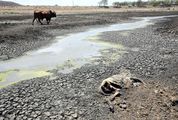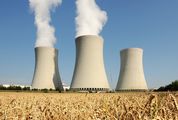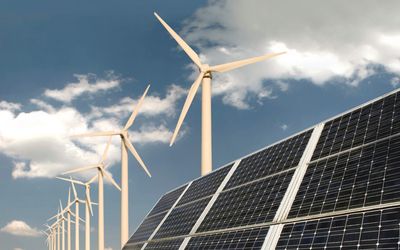THE government needed to "pull out all the stops" to remove outstanding barriers and to look at innovative ways of reducing the financial cost of renewable energy sources, World Wide Fund for Nature South Africa Living Planet Unit head Saliem Fakir said on Friday after the Intergovernmental Panel on Climate Change (IPCC) released its latest report.
The IPCC said the report, it’s fifth since 1990, showed the evidence for human influence on the climate system was clear, had grown and its effects were evident in most regions of the globe.
Energy accounted for more than two-thirds of greenhouse gas emissions and in South Africa, coal-fired electricity accounted for about 90% of the "energy mix", Mr Fakir said.
"For this reason we are calling for double the effort and double the ambition. Government has already committed to generating around 19 gigawatts (GW) of electricity through renewable energy by 2030. Doubling the effort means delivering on that far sooner than the deadline. Doubling the ambition means finding the money and reducing the capital required to increase our goal from 19GW to 38GW," he said.
The IPCC is a scientific intergovernmental body first established in 1988 by two United Nations (UN) organisations, the World Meteorological Organisation and the United Nations (UN) Environment Programme, and later endorsed by the UN General Assembly.
In March 2010, at the invitation of the UN secretary-general and IPCC chair, the InterAcademy Council was asked to review the IPCC’s processes for developing its reports. That panel found that, the IPCC assessment process had been "successful overall", but made some recommendations for improving the IPCC’s assessment process, including encouraging review editors to ensure that all reviewer comments were adequately considered and genuine controversies were adequately reflected in the assessment reports.
"Warming in the climate system is unequivocal and since 1950 many changes have been observed throughout the climate system that are unprecedented over decades to millennia. Each of the last three decades has been successively warmer at Earth’s surface than any preceding decade since 1850," the IPCC said in its Summary for Policymakers.
"Observations of changes in the climate system are based on multiple lines of independent evidence. Our assessment of the science finds that the atmosphere and ocean have warmed, the amount of snow and ice has diminished, the global mean sea level has risen and the concentrations of greenhouse gases have increased," said co-chair of IPCC Working Group I Qin Dahe.
South African Weather Service scientist Mxolisi Shongwe said South Africa’s research and scientific institutions would have to look at, and use, the information presented to provide more local-scale details that could help in assessing whether the country’s climate change strategies were still be valid.
Dr Shongwe said Friday’s report only contained assessment of the physical scientific basis of climate change, and a follow up report that details the effects, vulnerability and adaptation to climate change would be released in March 2014.
Global increases in mean, maximum and minimum temperatures, were recorded during the last half of the 20th century, with the most significant warming occurring during the last two decades, Dr Shongwe said.
In recent decades, most of South Africa had experienced temperature trends of similar to the global mean temperature.
"The observed changes in temperature will continue into the 21st century, with the Northern Cape projected to warm faster than the global average warming rates. Rainfall changes are not uniform throughout the world. Some regions have experienced a reduction in rainfall, while others have experienced either an increase or no change. In the future, much of South Africa falls within the area that is expected to experience a reduction in rainfall. One of the highest threats for South Africa is that posed by weather extremes whose intensity and frequency has been increasing in recent decades and will continue to increase in the future," he said.
South Africa is a water-scarce country, with 95% of its available fresh water already allocated by 1990. It is predicted South Africa could run out of water by as early as 2025, with it’s economic hub, Gauteng, doing so by early 2015.





















Change: -1.59%
Change: -1.79%
Change: -1.88%
Change: -1.70%
Change: -1.62%
Data supplied by Profile Data
Change: -0.64%
Change: 0.12%
Change: -1.60%
Change: 0.00%
Change: 0.10%
Data supplied by Profile Data
Change: 0.73%
Change: -0.04%
Change: 0.78%
Change: 1.40%
Change: 1.28%
Data supplied by Profile Data
Change: 0.69%
Change: 0.82%
Change: 0.00%
Change: 0.50%
Change: 0.05%
Data supplied by Profile Data